
table of contents
- Federal Species Protection Ordinance
- Hydrocyanic acid
- Shoot them
- vinegar
- Safety nets
- Poison wheat
- Adhesive sprays / pastes
- Traps alive
- Nail boards
- Gently drive away pigeons
- frequently asked Questions
Pigeons are not considered popular birds and many want to get rid of them by all possible means. Anyone who uses prohibited means, which may even lead to the death of the pigeons, risks high penalties.
In a nutshell
- Pigeons are protected by the Federal Species Protection Ordinance
- Pigeons are not allowed to be killed or caught
- Poison can kill other animals too
- Vinegar damages the plumage
- Adhesive sprays and pastes glue the plumage together
Federal Species Protection Ordinance
In the Federal Species Protection Ordinance it is fundamentally stipulated that all wild animals are under protection. Pigeons enjoy in Animal Welfare Act Although they do not have any special protection, they do enjoy basic protection. Even hunters are not allowed to simply shoot pigeons.
Pigeons are both what their food and the places where they reside and
propagate concerns, very adaptable. They also have a high reproduction rate, which is why a lot of offspring can be produced within a short period of time. Large flocks of pigeons can cause considerable damage, which is why illegal means are also used.
Note: There are many alternatives how to get rid of pigeons sustainably without the use of prohibited means.
Hydrocyanic acid
Hydrocyanic acid is also available under the name hydrogen cyanide (HCN) and is a particularly painful method of killing pigeons.
How does hydrogen cyanide work?
- first leads to unconsciousness and respiratory arrest
- Death occurs after a few minutes
- often associated with severe pain
Hydrocyanic acid is a dangerous substance because it can also be absorbed through the air we breathe. If used improperly, it can even pose a danger to people or other animals such as pets. The product has been banned in the European Union for many years for good reason and products containing hydrogen cyanide are no longer permitted. The import of pigeon poison containing hydrogen cyanide into the EU is also prohibited.
Shoot them
Pigeons are not allowed to be hunted as wild animals. You are also not allowed to shoot the pigeons with so-called non-lethal weapons. These primarily include air rifles. As a rule, they do not kill the pigeons immediately, the pressure when the projectile hits is usually so great that the pigeons get internal injuries that cause them to perish.
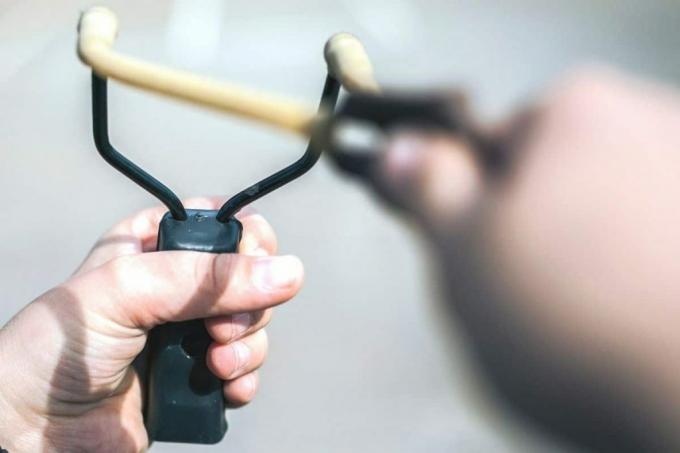
It is also forbidden to shoot pigeons with a slingshot or other projectiles. Childish pranks, where birds are shot with twins, can meanwhile result in expensive criminal penalties. It is not even allowed to throw a stone at the pigeons.
vinegar
What you can shoot pigeons with is water. In order to maximize the effect, water mixed with vinegar was filled into water pistols with which the pigeons were shot. In this case the water loses its disgraceful effect and becomes a fatal shower for the pigeons with the vinegar.
The vinegar water destroys the layer of fat on the plumage. This can lead to the birds no longer being able to fly and perishing.
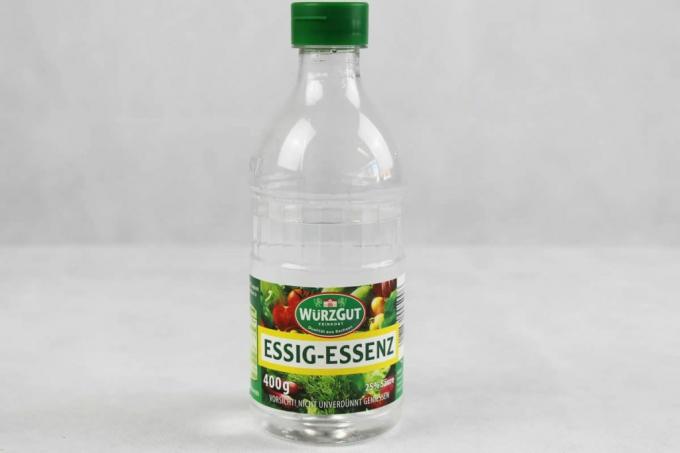
Safety nets
Fine-meshed nets in which the pigeons can get tangled are also not allowed. The pigeons - and also other bird species - can no longer free themselves and die in it if they are not found in time.
Note: If you have attached a cat protection net to the balcony, choose the mesh size so large that a bird cannot get tangled. In addition, the net should be well tensioned so that the pigeons can sit on it, but not get caught.
Poison wheat
Poison wheat is mainly used to combat Rats and Mice used. The poison wheat may only be used in connection with special bait boxes so that other animals cannot get to it. However, poison wheat is also fed to pigeons as a prohibited substance.
How poison wheat works
- Toxin zinc phosphide
- Reaction with stomach acid
- toxic hydrogen phosphide is formed
- Pigeons perish
How quickly poison wheat works depends on the amount of wheat in the stomach. The problem with poison wheat is that other birds can also eat the poisoned grains and die from it. The dead pigeons themselves can in turn be eaten by other animals, which can also be damaged by the toxin.
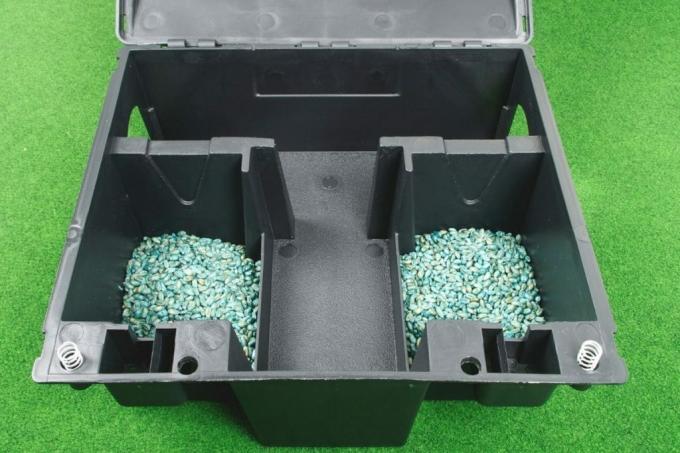
Adhesive sprays / pastes
In the trade there are still sprays or pastes that are simply applied to railings or other places where pigeons like to sit. These agents contain adhesives that get on the plumage by sitting on these surfaces. When caring for the plumage, the glue is also distributed, making the birds unable to fly and perishing.
- problem comparable to that of poison wheat
- Sprays and pastes also trap deaths for other birds
- no consideration for endangered / protected species
- possibly. more severe penalties the consequences
Traps alive
Live traps do not kill pigeons, but it is forbidden for private individuals to catch wild birds. These traps, in turn, may only be used by professionals if there is a permit that the pigeons are so strongly represented regionally that they are considered pests.
When using live traps, however, there are always injuries to the birds that have to be treated. In addition, it must be clarified in advance where the pigeons will be released. You can't just release the birds in the next location, potentially increasing the population and causing them more damage.
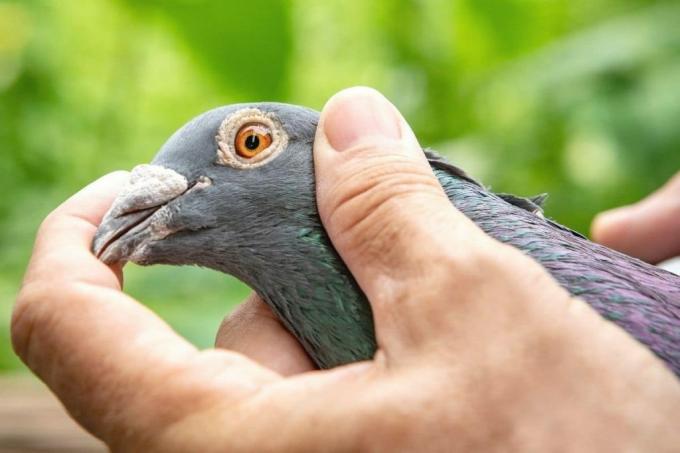
Tip: Should you have an acute problem with pigeons, contact a hunter or pest controller. They have the permit to catch wild animals alive and also know suitable places where they can release them again.
Nail boards
Boards that are spiked with long nails are also prohibited. Not only can they be dangerous to pigeons, they can also injure other large birds.
Nail boards can also be dangerous for other animals that are protected by the Animal Welfare Act:
- Cats
- squirrel
- Dormouse
Gently drive away pigeons
Instead of the prohibited agents against pigeons mentioned here, there are also numerous alternatives with which you can drive the animals away without harming them. These include:
- Elimination of food sources
- Use of dummies of birds of prey
- Spreading dog and cat hair
- Pigeon fright made of CD, DVDs or aluminum foil
- Wind turbines
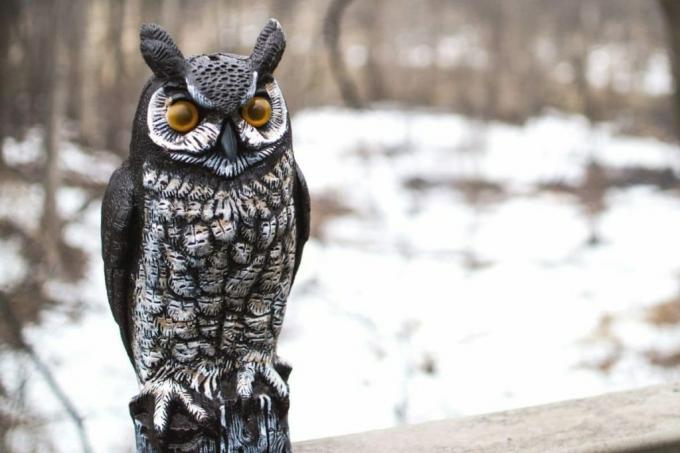
Tip: Pigeons are real creatures of habit. Therefore, the combined use of different methods is often recommended to really get rid of them.
frequently asked Questions
No, as soon as an agent is prohibited, the use of residual amounts is also prohibited. You can often return leftover stocks to sales outlets or hand them in at collection points for problematic substances. Do not throw banned pesticides down the drain or with household waste. This can occur during disposal or Treatment of water can be problematic.
Yes, in some cases professionals are also allowed to use funds that kill the animals. Professional pest controllers often have special permits and are trained to use such agents so that no other animals are harmed.
Means such as rice or baking powder are said to swell up in the stomach when fed dry and cause the pigeons to perish. Due to the fact that the pigeons could die from it, the agent is not allowed. However, the likelihood of them perishing is low, as pigeons can regurgitate larger amounts of food.

